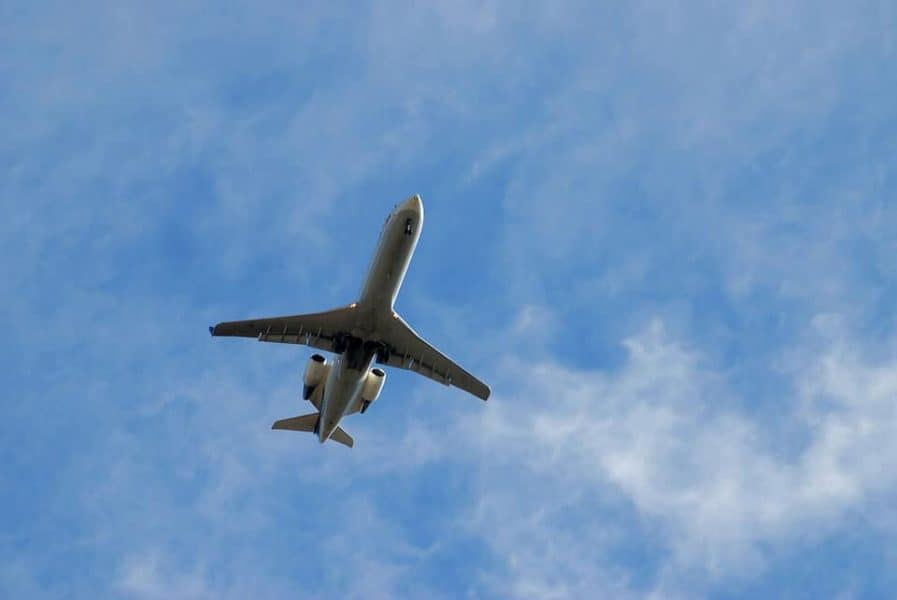Contrails — the white, fluffy streaks in the sky that form behind planes — can harm the environment. Now, scientists report in ACS’ Environmental Science & Technology that small flight path adjustments could reduce the climate impact of these emissions.
Contrails materialize at cruising altitude when aircraft emit black carbon particles from incomplete fuel combustion, providing a surface on which moisture condenses to form ice particles. Most contrails last only a few minutes. But if the atmosphere is supersaturated with ice, these tracks can spread and mix with other contrails and cirrus clouds, forming “contrail cirrus” that last up to 18 hours. Previous studies suggested contrails and the clouds they induce have as much of a warming impact on climate as planes’ CO2 emissions. Marc Stettler and colleagues wanted to refine the models to more accurately predict the characteristics and impact of contrails, and to evaluate mitigation strategies, such as altering flight paths.
The team combined their recently developed model to estimate black carbon emissions for specific aircraft engine types and power with a model to estimate the characteristics and climate impact of contrails from individual flights and detailed weather information. In a study of Japan’s airspace, they showed that 80% of warming caused by contrails could be traced to a mere 2.2% of flights. They then showed that making only 1.7% of aircraft fly 2,000 feet higher or lower than their originally planned flight path could limit formation of contrails, thereby reducing their warming effect by 59.3%. Unfortunately, diversions can also make flight paths less efficient, leading to increased CO2 emissions, and previous studies that considered lateral diversions indicated this could offset any reduction in contrails. But by targeting the few flights that cause the most warming contrails and only making small altitude changes, the team found the reduction in contrail warming outweighed the CO2 penalty. In the long term, if conventional engines were also replaced with cleaner-burning engines, overall contrail impact could be reduced by 91.8%, the researchers say.
The authors acknowledge funding from the Lloyd’s Register Foundation and Imperial College London. The paper’s abstract will be available on Feb. 12 at 8 a.m. Eastern time here: http://pubs.

